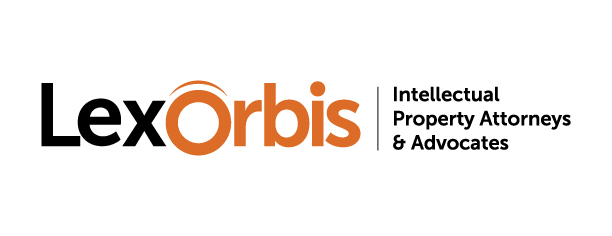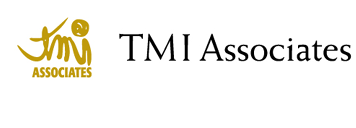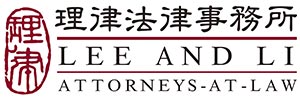INDIA
Non-fungible tokens (NFTs) have attracted a lot of hype globally in the past few years. Their popularity and valuation are growing exponentially in India too, so are the legal challenges associated with them. In this article, the authors throw light on some of these challenges.

Founder Partner
LexOrbis, New Delhi
Tel: +91 98 1116 1518
Email: manisha@lexorbis.com
Starting with the basics, NFTs are blockchain-based tokens with a unique ID linked to an underlying asset, which cannot be replicated or tampered with. Most of the works that are traded as NFTs are photographs, artworks, video clips and such.
Widespread infringement of the copyright in such works is taking place in the NFT space at two levels – by the NFT creator or seller who indulges in unauthorised minting or publication, and by the buyer who undertakes unauthorised reproduction and distribution of NFTs.
A fair idea of the magnitude of this problem can be gleaned from a statement released earlier this year by the largest NFT marketplace, OpenSea, over pulling back a free listing tool on its platform because “more than 80% of the items created with this tool were plagiarised works, fake collections and spam”.
However, the feature was rolled back because the NFT creators or platform users were not quite happy about this change. Hence, counterfeit NFT collections continue to flood the market.
OUTSIDE EXISTING LAW
Even though this is a new form of infringement, India’s existing copyright law does give enough coverage. Under section 14 of the Indian Copyright Act (1956), the copyright owner of an original work owns a bundle of rights, including the right to make reproductions and adaptations.
The minting or publishing of a copyrighted work through an NFT and making it open to purchase involves making a copy of the work and communicating it to the buyer or potential buyers. Without a licence or authorisation of the copyright owner, this amounts to unauthorised reproduction and distribution, and hence copyright infringement under section 51 of the Copyright Act.
When it comes to infringement by NFT buyers, it wouldn’t be wrong to say that many cases are instances of innocent infringement. People generally work on the understanding that once an NFT is purchased, they own the underlying asset or IP as well, which is not true.
On the purchase of the NFT, the buyer does not automatically acquire the rights in the underlying IP unless the same is assigned by way of a written agreement. When NFT buyers start reproducing the underlying video clip or artwork, make copies and put it to use commercially, they fail to understand they are acquiring only a metadata file that is a signed copy or receipt of the work , not the IP.
COURT RULINGS AWAITED

Associate Partner
LexOrbis in New Delhi
Email: simrat@lexorbis.com
Owing to the peculiar nature of infringements taking place in this area, it is important to see how courts look at the issue and apply existing laws to this new phenomenon.
No NFT-related copyright or trademark infringement issue has yet been decided by courts in India, however cases filed in other jurisdictions can be a good source of guiding vision. The first that comes to mind is the Hermès dispute in the US. Earlier this year, French luxury design house Hermès sued a Los Angeles-based artist, Mason Rothschild, alleging he created NFTs called “metabirkins” very similar to Hermès’ iconic “Birkin” bag. Hermès complained this was the same as counterfeiting in the offline world, and the artist earned thousands of US dollars selling the NFT, just like he would have earned by selling a counterfeit physical bag.
The court’s decision is awaited, and once handed down will likely have major implications on how the world looks at infringement in the metaverse.
There has also been a landmark development in Asia, with a Chinese court for the first time delivering judgment on an NFT-related copyright infringement lawsuit. Shenzhen Qice Diechu Cultural Creativity, the copyright owner of the “fat tiger” illustration series, sued Hangzhou Yuanyuzhou Technology, operators of an NFT digital art trading marketplace called Bigverse, alleging a user on their platform created and sold an NFT of digital work identical to the copyrighted work in question.
The plaintiff alleged the NFT platform was guilty of contributory copyright infringement. The court held in the plaintiff’s favour ordering the platform to render the NFT inaccessible or non-transferrable, as well as pay damages.
In India too, there is a provision of liability for contributory infringement under copyright law. But section 79 of the Information Technology Act (2000) exempts intermediaries from all liability for the acts of users. NFT platforms are also likely to successfully claim the status of intermediary and hence a safe harbour.
In digital NFT marketplaces, traders can buy and sell NFT tokens through the usage of cryptocurrencies. They are, therefore, online platforms that act as conduits between buyers and sellers of NFT assets.
DUE DILIGENCE
But to take protection under section 79, the intermediaries are required to release some due diligence burden. They need to take reasonable care and take prompt action if they gain knowledge that their platform is being exploited to facilitate illicit activity.
If they don’t implement or follow the measures listed under the Information Technology (Intermediary Guidelines and Digital Media Ethics Code) Rules (2021), they can become liable for the act of a user as a contributor or facilitator.
E-commerce platforms like Amazon and Flipkart, and entertainment platforms like YouTube, all apply such measures, so should the NFT platforms. Due to their blockchain nature, NFT platforms might face some unique problems. But their core responsibilities and liability in cases of due diligence deficits should be the same.
It is pertinent to note that, unlike an online platform that simply hosts content, NFT platforms offer the technology for creating an NFT and they automatically draft smart contracts for sales. Therefore, their role with respect to the content is not passive. Like e-commerce platforms, it is crucial to hold them liable if they don’t delist infringing collections when aware of them.
Well-established digital platforms have account verification systems and offer some sort of automated system to identify, remove and prevent “copymints” (copying of authentic NFT content). OpenSea, for example, provides such a system. Its website states: “Our new copymint prevention system leverages computer vision tech to scan all NFTs on OpenSea (including new mints). The system then matches these scans against a set of authentic collections, starting with some of the most copyminted collections – we’ll look for flips, rotations and other permutations. We’ll expand this set over the coming months and constantly train our models to improve detection.”
The platform further mentions: “Our user safety team actively monitors the platform and removes fraudulent content as soon as it is discovered or reported by users.”
All NFT platforms should be made to take such measures to stand compliant with the due diligence provisions of Intermediary Rules, or they should be made liable for contributory infringement.
TRADEMARK PROTECTION?
Particularly with respect to trademarks, another question comes to mind on whether registrations in class 9 of the Nice classification should be a prerequisite to protect trademarks in the NFT space.
For instance, if a footwear brand has registration in class 25 for its brand, can it file an infringement suit against an NFT minter who mints images of the same-looking footwear carrying the same brand? If not, does it mean that all businesses or brands are expected to procure registration for their brands in class 9 if they wish to protect their brand in the metaverse?
Assuming they obtain registrations for their brands in class 9, how would they maintain them after five years, if they fail to show actual use of the brands for virtual goods in the metaverse? Ideally, registrations should not be considered compulsory in class 9, and the cross-class relevance factor should come into play here. However, it remains to be seen how courts look at this.
If any copyrighted content is being licensed to a licensee by the copyright owner for any sort of digital usage, it’s important to expressly cover in the contract if such licence includes the right to NFT minting or not, so that the licensees don’t misuse the vague or broad language or clauses of the agreement.
ACCOUNTABILITY IS THE KEY
The above-mentioned examples raise just a handful of current issues or questions, with many new problems likely to emerge as NFTs gain more popularity.
Although making people aware of the acts that amount to infringement may help a great deal, at least to minimise innocent infringements. It seems making the NFT platforms accountable along the lines of other intermediaries like YouTube and Amazon would finally provide for some real solution to NFT counterfeits because tracing individual infringers and going after each of them would be practically impossible for copyright owners.

LexOrbis
709-710 Tolstoy House
15-17 Tolstoy Road
New Delhi – 110001, India
Tel:+91 11 2371 6565
Email: mail@lexorbis.com
JAPAN
Japan’s non-fungible tokens (NFTs) market emerged in early 2021 with many companies since entering the business, which continues to grow and expand. With a wealth of internationally competitive IP such as animation, manga and games, NFT-related business in these fields has become very active. In addition, many companies have also started NFT-related businesses in the sports industry.

Senior Partner
TMI Associates
On the other hand, some existing laws and regulations have been a hindrance to starting new NFT-related businesses. The authors described the updated status of NFTs under Japanese law in the article titled “A comparison of regulations surrounding NFTs”, published in the September/October 2021 issue of Asia Business Law Journal.
Since then, no new laws or regulations relating to NFTs have been enacted, nor have any guidelines been issued by the Japanese government. But a number of project teams have been set up by parliamentarians and relevant industry associations to examine existing and possible problems with the current laws and regulations, organise legal interpretations and lobby the government on the need to amend the laws.
This article introduces two important legal issues that are real problems for NFT-related business in Japan, providing guidance on how to resolve them, as well as the current state of the debate.
GAMBLING-RELATED OFFENCES
The Japanese Penal Code prohibits any act of gambling (i.e., the contesting of gaining or losing property by winning or losing by chance) that could result in criminal penalties for those who engage (Penal Code, article 185).
The method of selling NFTs at random is one of the related businesses gaining popularity worldwide. For example, when selling digital trading card NFTs, businesses usually create a package and randomly combine multiple NFTs into its package, with contents revealed after purchasing them.

Partner
TMI Associates
But there is debate as to whether or not the formation of a secondary distribution market by an operator in the random sale of such NFTs may constitute a prohibited gambling offence.
The reason is that if the NFT purchased as a package on the primary distribution market is traded on the secondary distribution market at a lower price. The purchaser is considered to have obtained the NFT worth less than the price actually paid on the primary distribution market, and the purchaser is perceived to be losing property for the difference. This concern has deterred many businesses from launching random NFT sales with a secondary market.
Regarding this issue, many legal experts strongly suggest that since the price formation carried out by users in the secondary distribution market is based on circumstances separate from the sales price formation carried out by sellers in the primary distribution market, the market price in the secondary distribution market should not be taken into account when calculating the value of NFTs obtained by users in the primary distribution market.
Therefore, the establishment of a secondary distribution market when selling NFTs through a random method should be assessed as not constituting a gambling offence. Given the situation, on 12 October 2022, the Japan Contents Blockchain Initiative, an industry association with a large number of content-related companies as members, jointly with other blockchain-related industry associations, published industry guidelines on the random sale of NFTs.
The guidelines state that as long as the seller does not set the purchase price or other resale price on the secondary distribution market – and does not purchase or resell the NFTs on its own – there should be no problem with the seller operating and managing the secondary distribution market on its own, and it does not constitute a gambling offence.
The guidelines also state that in cases where individual sales are conducted in addition to random sales in the primary distribution market, the selling price of random sales must not exceed the lowest selling price set at the time of individual sales for the NFTs that appear. As the content of these guidelines is only the industry association opinion, careful consideration is required when actually operating such business, and an official opinion on this issue from the regulator is awaited.
Nevertheless, publication of these guidelines will encourage operators to conduct random NFT sales business with a secondary distribution market, and is expected to be a catalyst for further development of NFT-related business in Japan.
ESCROW SERVICES
Trading of NFTs on platforms is now dominated by the use of crypto assets as payment. To ensure the safety of NFT transactions between users on platforms, there is a demand for platforms to provide escrow services.

Associate
TMI Associates
Namely, platforms should not only act as an intermediary in the transaction, but also receive payment from the buyer on behalf of the seller, and deliver payment to the seller after confirming delivery of the NFTs. Such escrow services are already active in Japan, such as in e-commerce.
However, when providing escrow services for crypto assets, the platform manages them between receiving from the buyer and delivering to the seller, which may fall under the definition of “managing crypto assets for others”, as stipulated in the Payment Services Act. Therefore, based on the act, it may be necessary to obtain registration as a crypto asset exchange business.
But the hurdles to obtaining registration as a crypto asset exchange business in Japan are relatively high, as various requirements are imposed including the establishment of a financial basis, management system and compliance system. Therefore, obtaining such registration is not necessarily easy for a platform without crypto assets exchange business as its main business. This problem is clearly a major obstacle to securing NFT transactions between users.
With regard to money escrow services currently provided in e-commerce, in practice the act of a platform temporarily managing money is merely a preparatory act to fulfil its own obligation to deliver money to the seller, and is therefore not considered to be managing money for others. It is organised as not being a deposit, which is prohibited under the Act Regulating the Receipt of Contributions, Receipt of Deposits and Interest Rates.
As such, money escrow services and crypto assets escrow services should not in theory be treated differently, according to many legal experts. They suggest that crypto asset escrow services provided by platforms in NFT trading transactions between users should also be organised as not managing crypto assets for others. Registration as a crypto asset exchange business should therefore not be required for such services.
However, certain guidelines are considered necessary for the storage of crypto assets, as the risk of leakage is higher than for storage of money, and more careful measures against money laundering are required. Accordingly, voluntary members of parliament published a white paper on NFTs in April 2022, requesting the Financial Services Agency (FSA), which has jurisdiction over the crypto assets exchange business, to clarify the rules in this regard. Businesses are advised to pay attention to the FSA’s formulation of rules in the near future.
CONCLUSION
Along with these two highlighted recent legal issues, many others have arisen that could hinder the growth of NFT-related businesses as they expand.
How NFT-related businesses should be assessed when applied to existing legal and regulatory frameworks, and whether new laws and regulations should be created, are also subject to active discussion and are currently important considerations for the government.
Market participants need to be aware of recent developments in Japanese laws and regulations, and should seek advice from knowledgeable counsel.

23/F, Roppongi Hills Mori Tower
6-10-1 Roppongi, Minato-ku
Tokyo – 1066123, Japan
Tel: +81 3 6438 5511
Email: info_general@tmi.gr.jp
TAIWAN
New applications of cryptocurrency and blockchain technology called non-fungible tokens (NFTs) are a hot topic in Taiwan. But currently, there are no regulations specifically addressing their rise and development, and the regulator does not seem to have revealed any official view on the trend.
From a local perspective, the classification of any NFT and related activities or transactions should be determined on a case-by-case basis, referring only to existing laws and regulations.
SECURITIES AND FINANCIAL LAW

Partner
Lee and Li
NFTs are commonly structured to represent digital artworks, musical works, collectables, sports cards and photo albums, and their classification would depend on the structure and linked assets or interests, among other factors.
In November 2021 and March 2022, Huang Tien-Mu, chair of the Financial Supervisory Commission (FSC), remarked that NFTs are considered art creation, so their sale should not be deemed virtual currency. He also indicated that whether NFTs should be regulated in the future would depend on factors such as their implications for financial stability, among other things.
So, it seems to be that if NFTs represent “art creation” they should not be regulated by existing financial laws and regulations.
The authors consider it less likely that NFTs would be deemed to be securities or any other financial instrument falling under existing financial instruments regulation, as long as the NFT is linked to (or represents) a unique underlying asset; and there are not multiple NFTs linked to or representing the same asset.
However, due to the possible investment character of NFTs, the applicability of financial law and securities regulations still cannot be completely ruled out.
Interestingly, in July, the FSC expressly prohibited local acquiring banks from allowing local credit cards as a means of payment for virtual assets and, accordingly, local acquiring banks should not accept virtual asset service providers as contracted merchants for the purpose of credit card transactions. The arising issue would then be whether virtual assets should be interpreted to include NFTs.
The authors understand there have been certain discussions between relevant blockchain/crypto industry players and the FSC and local bankers’ association in this regard. But even if the FSC held the view that NFTs should not be covered by the virtual assets prohibition – as if they simply represent, say, art creation or coupons, and do not have the nature of investment – in practice, it may not be easy for a local acquiring bank to confirm whether any NFT has the nature of investment.
So, whether a local acquiring bank will accept an NFT-related service provider as a contracted merchant for credit card transactions should still depend on the bank’s internal assessment and decision on a case-by-case basis.
NFT HOLDER RIGHTS, INTERESTS

Associate
Lee and Li
Ownership of NFT assets depends on the structure and underlying asset. For example, after a transfer of an NFT representing a digital artwork to the purchaser, the purchaser as the NFT owner has access to the underlying asset. But this does not mean automatically obtaining ownership of the content of the underlying digital artwork.
Depending on the terms and conditions, the NFT purchaser might only be entitled to view the digital artwork, and does not acquire ownership in any form (e.g. any electronic files of the artwork).
For any NFT designed and intended to represent any physical asset – take sneakers as an example – the issue may be whether the NFT transfer would equate to transfer of the sneakers to the transferee. If yes, Taiwan’s Civil Code would view the transfer as similar to a claim against the warehouse operator with which the sneakers are deposited. The purchaser of an NFT may want to carefully assess and understand all the legal rights, titles and interests in and to the NFT before making the decision, from the perspectives of the NFT itself and the assets and/or interests linked to it.
NFT creators or issuers may want to specify the rights the holder would acquire in the offering terms (or equivalent to it), focused on the accuracy of product descriptions and warranties, as well as avoidance of over-promise.
For example, the terms should not suggest offering a form of digital ownership behind the NFT when in reality the holder merely has the right to view the asset and does not own the content. Otherwise, civil or consumer disputes or even criminal liability might arise.
In practice, it is also expected there will be NFT marketplaces, platforms or exchanges where NFTs can be listed and traded. Similar to ordinary electronic commerce platforms, standard terms and conditions for these marketplaces should specify the rights and obligations of registered users or members.
Before launching or permitting the listing of any NFT, marketplace operators need to carry out necessary due diligence investigations, commercial and legal, to avoid potential liability due to any law violation or third-party claim by the creator or issuer. Agreement between the marketplace operator and creator or issuer might need to clearly state the division of liabilities that may arise.
An offering of NFTs and access to underlying assets might also be exposed to technology risks such as a security breach, unauthorised intrusion by hackers, service disruption or technical malfunction of relevant networks, which may even cause unavailability of the offering. NFT creators and marketplace operators may want to address the risks by incorporating reasonable disclaimers, to the extent that applicable laws permit.
IP RIGHTS
IP rights, especially copyright, can be a critical issue for NFTs if the underlying assets involve artworks, photographic works, musical works and recordings. NFT creators or issuers would need to obtain necessary licences or authorisation from the IP owners before issuing any NFT.
NFT marketplace operators may need to conduct relevant checks to mitigate the associated risks. It is important to ensure under marketplace terms that NFT holders hold and exercise only relevant rights and use of the NFT, and do not infringe any third-party rights, specifically IP rights.
METAVERSE AND NFTS
The metaverse, a term combining the prefix “meta”, meaning beyond, and “universe”, generally refers to highly interactive virtual worlds or digital spaces accessed with technologies such as augmented reality (AR) or virtual reality (VR), and specific devices such as VR headsets and AR glasses. NFTs are perceived as a crucial element of this metaverse. For example, in traditional gaming, players pay to buy in-game assets, while most in-game assets are merely licensed to players, and can even be revoked by publishers. Some industry players believe this can be addressed by tokenising the assets and creating gaming NFTs so the concept of portable game assets – in-game assets that can be brought off the game or transferred across multiple platforms – can be made possible.
From a legal perspective, if this is the real intention of the game publisher, then the publisher might need first to amend the terms applying to the game so that an NFT purchaser may really “own” the underlying game asset, depending on the structure of the NFTs. Also, as the original game assets are subject to applicable terms and licences granted by the publishers, an agreement between publishers may be needed to allow the game assets to be portable or transferable between different platforms, or between games.
ANTI-MONEY LAUNDERING
With respect to digital currency platform operators and transactions, the latest amended anti-money laundering law (AML) law has brought virtual currency platforms and trade businesses into Taiwan’s regulatory regime, under which enterprises falling within the designated scope will be subject to relevant rules applicable to financial institutions.
In April, the Executive Yuan (cabinet) issued the AML Ruling, which interpreted the scope of enterprises in virtual currency platforms and trading businesses. The FSC followed it by promulgating AML Regulations governing the law and countering financing of terrorism for enterprises of virtual currency platforms and trading businesses. According to the regulations, designated operators of crypto-asset platforms and trade businesses are required to establish internal control and audit mechanisms, reporting procedures of suspicious transactions and know-your-customer procedures, among others. Both the ruling and regulations took effect in July 2021.
It is unclear whether NFT market players fall within the designated scope described under the AML Ruling. The key issue will be whether the term “virtual currency” under the ruling will also be interpreted to cover NFTs. If yes, then relevant market players – especially marketplace operators and any business operators providing NFT custody-related services – will be obliged to follow the AML Regulations and perform the above-mentioned obligations.
The authors believe this will substantially increase compliance costs for relevant NFT market players. Considering that in practice trading NFTs might involve a massive amount of money, which may to some extent justify any potential AML obligations, industry players are well advised to follow the regulatory trends closely.

Lee and Li
8/F No.555, Sec. 4, Zhongxiao E. Rd.
Taipei – 11072, Taiwan
Tel: +886 2 2763 8000
Email: attorneys@leeandli.com
































